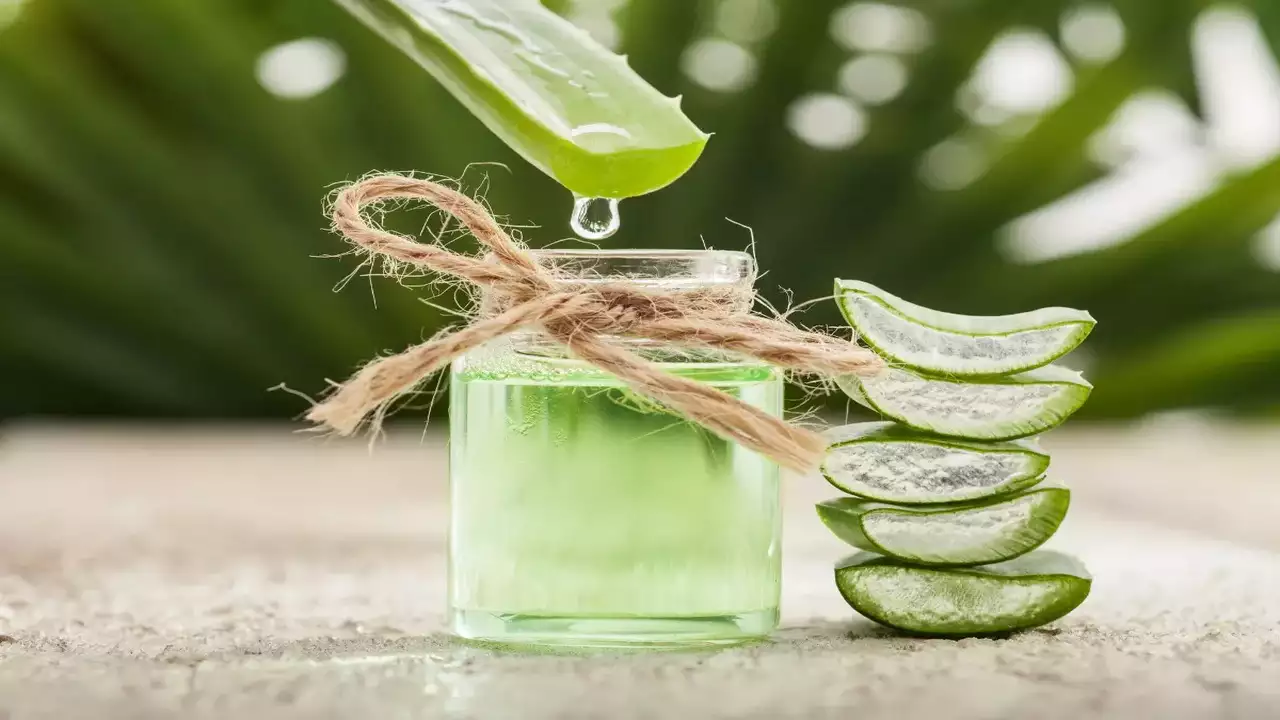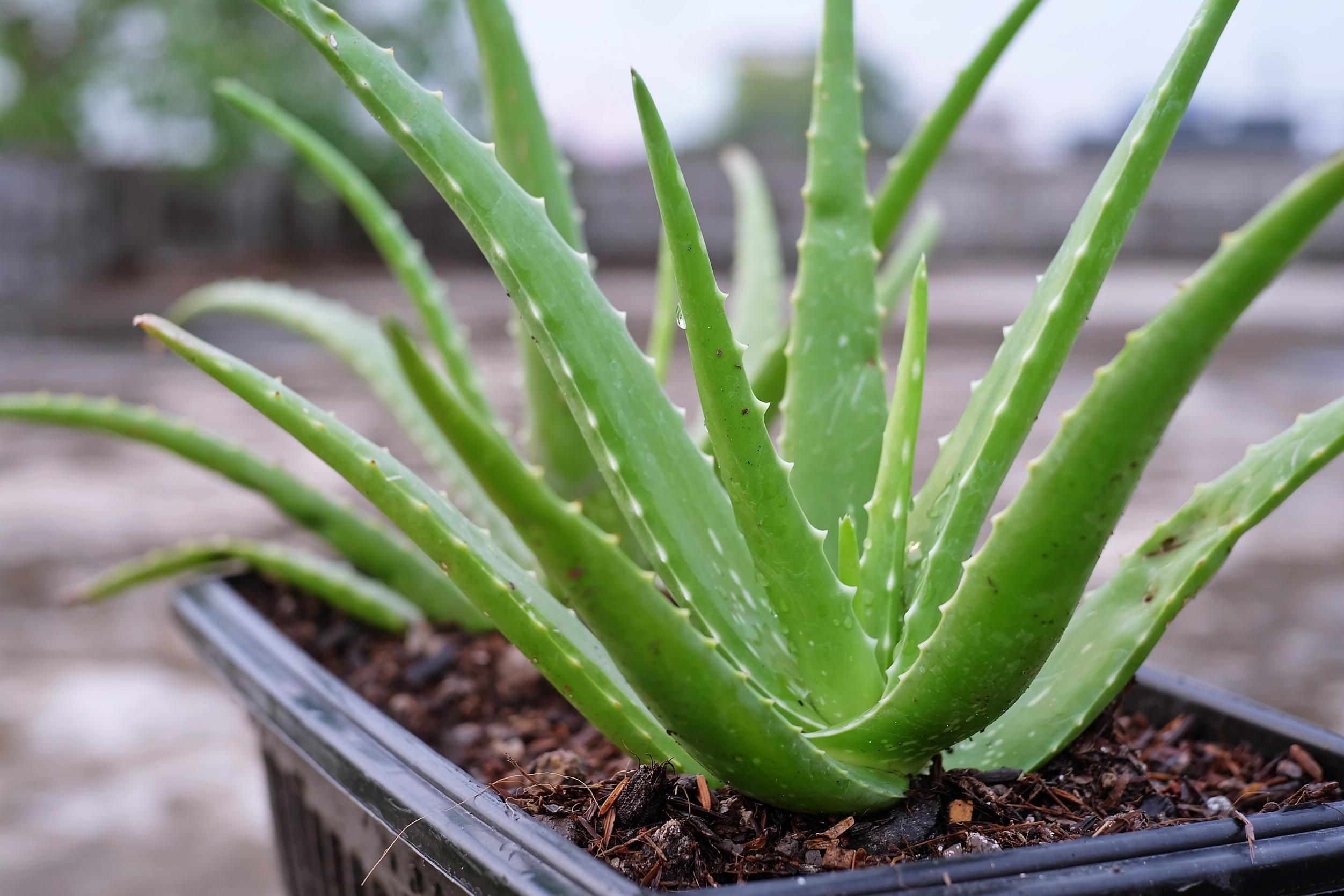
Aloe vera has long been cherished for its medicinal properties, particularly when it comes to skincare. With its anti-inflammatory, hydrating, and healing properties, aloe vera is a popular natural remedy for treating skin conditions such as acne, sunburn, and dry skin. In this article, we will explore how aloe vera works on the skin and how to use it effectively for treating these common skin issues.

Why Aloe Vera is Good for Your Skin
Aloe vera is packed with nutrients, including vitamins A, C, E, and B12, as well as minerals such as magnesium, zinc, and enzymes that are beneficial for skin health. It has antibacterial, anti-inflammatory, and antioxidant properties that help repair damaged skin, reduce inflammation, and soothe irritation. The gel from the aloe vera plant acts as a natural moisturizer that can penetrate deep into the skin, making it effective for a variety of skin concerns.
1. Aloe Vera for Acne Treatment
Acne is often caused by clogged pores, bacteria, or excess oil production, which leads to inflammation and breakouts. Aloe vera is an excellent remedy for acne because it contains salicylic acid and sulfur, which are known to help reduce acne and its associated symptoms.
How Aloe Vera Helps with Acne
- Anti-inflammatory: Aloe vera reduces the redness, swelling, and irritation caused by acne.
- Antibacterial: Its antibacterial properties prevent bacteria buildup that leads to acne.
- Heals skin: Aloe vera accelerates the healing of acne lesions and reduces the likelihood of scarring.
How to Use Aloe Vera for Acne
- Direct Application: Apply a thin layer of pure aloe vera gel directly to the acne-affected areas after cleansing your face. Leave it on overnight and rinse it off in the morning.
- Aloe Vera and Tea Tree Oil Mask: Combine aloe vera gel with a few drops of tea tree oil (a natural antiseptic) and apply it to your skin. Leave the mask on for 15–20 minutes before rinsing with cool water. Use this mask 2–3 times a week to help combat acne.
2. Aloe Vera for Sunburn Relief
Aloe vera is one of the most popular natural remedies for treating sunburn due to its cooling and anti-inflammatory effects. When applied to sunburned skin, aloe vera gel can reduce the heat and pain while promoting faster healing.
How Aloe Vera Helps with Sunburn
- Cooling Effect: Aloe vera’s high water content helps cool and soothe sunburned skin, providing immediate relief from the burning sensation.
- Anti-inflammatory: It reduces redness and swelling, which are common after sun exposure.
- Hydrating: Aloe vera locks in moisture and prevents peeling by keeping the skin hydrated.
- Healing Properties: Aloe vera accelerates the regeneration of skin cells, helping sunburned skin heal faster.
How to Use Aloe Vera for Sunburn
- Pure Aloe Vera Gel: Apply a generous amount of fresh or store-bought pure aloe vera gel directly onto the sunburned areas. Reapply several times a day for the best results.
- Aloe Vera and Cucumber Mask: For a more soothing treatment, blend aloe vera gel with cucumber slices and apply the mixture to the sunburn. The cucumber adds an extra layer of cooling relief while aloe vera works to heal the skin.
- Aloe Vera Spray: Fill a spray bottle with aloe vera juice or gel and spritz it on sunburned areas throughout the day for quick relief.
3. Aloe Vera for Dry Skin
Dry skin can feel tight, flaky, and uncomfortable. Aloe vera is a natural humectant, meaning it helps the skin retain moisture, making it an excellent solution for dry skin. Its hydrating properties, combined with its ability to penetrate deep into the skin, make it ideal for restoring the skin’s natural moisture balance.
How Aloe Vera Helps with Dry Skin
- Hydration: Aloe vera provides deep hydration and restores moisture to dry, flaky skin.
- Nourishment: The vitamins and minerals in aloe vera help nourish the skin, improving its texture and tone.
- Skin Barrier Repair: Aloe vera strengthens the skin’s barrier, preventing moisture loss and promoting long-lasting hydration.
How to Use Aloe Vera for Dry Skin
- Aloe Vera and Coconut Oil: Combine aloe vera gel with coconut oil (which is rich in fatty acids) to create a hydrating mask. Apply the mixture to dry areas of your skin and leave it on for 20–30 minutes before rinsing off with lukewarm water.
- Aloe Vera Moisturizer: Use aloe vera gel as a daily moisturizer by applying it to your face and body after bathing. You can also mix it with your regular moisturizer to boost its hydrating effects.
- Overnight Mask: Apply a thick layer of aloe vera gel on dry patches of skin before bed, and let it work overnight. The gel will soothe and hydrate your skin, leaving it soft and smooth in the morning.
Conclusion
Aloe vera is a versatile and natural remedy that can help treat a variety of skin issues, from acne and sunburn to dry skin. Its anti-inflammatory, antibacterial, and hydrating properties make it a must-have for your skincare routine. Whether you’re using it to soothe inflamed acne, heal sunburned skin, or lock in moisture for dry skin, aloe vera is an effective, affordable, and natural solution for maintaining healthy skin.
Regular use of aloe vera can promote clearer, more radiant skin while providing relief from common skin irritations. For best results, always use pure, organic aloe vera gel or freshly extracted gel from the plant to ensure your skin gets the maximum benefits.







